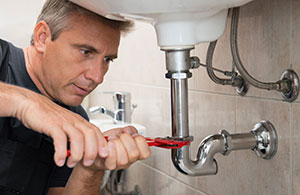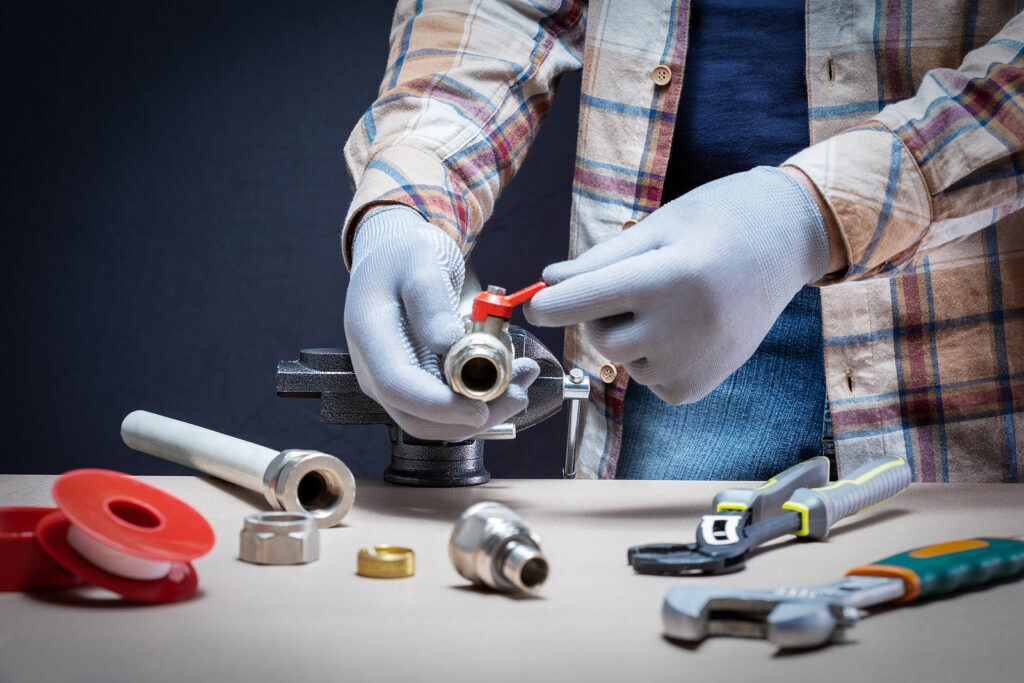Essential Plumbing Tips for Urgent Issues: What to Do Until Help Arrives
Essential Plumbing Tips for Urgent Issues: What to Do Until Help Arrives
Blog Article
Do you find yourself on the lookout for facts about Expert Tips for Managing a Plumbing Emergency Until Help Arrives?

Plumbing emergency situations can strike at any moment, triggering anxiety and potential damages to your home. Whether it's a ruptured pipeline, a stopped up drain, or a leaky tap, understanding exactly how to manage the scenario up until a professional plumbing professional gets here can save you from further difficulties. This post offers essential emergency situation plumbing pointers to assist you minimize damage and reclaim control throughout a pipes crisis.
Switch off the Water System
The first step in any kind of plumbing emergency situation is to turn off the water. For localized concerns, such as a leaking tap or bathroom, switch off the valve near the component. In the case of a significant leakage or burst pipe, locate your home's main water shut-off shutoff and turn it off promptly. Knowing the area of these valves ahead of time can conserve useful time throughout an emergency.
Turn off Your Hot Water Heater
In certain emergency situations, such as a burst pipeline, it's wise to turn off your hot water heater. This avoids getting too hot or damages to the device when water stops moving. Shut off the power supply to the hot water heater (electric or gas) and allow it cool down to prevent possible risks.
Momentarily Stop a Burst Pipeline
A ruptured pipe can bring about significant water damages in mins. To reduce the concern:
Call an expert plumbing professional instantly to attend to the trouble permanently.
Have an Emergency Pipes Package
Prepare a basic plumbing emergency situation package to deal with small concerns effectively. Your kit must consist of:
Having these tools available can make a substantial distinction in your ability to manage emergencies.
Unclog Drains Securely.
A stopped up drainpipe can be a discouraging and unpleasant concern. Below's just how to tackle it:.
If these methods don't work, avoid using excessive force, as it might get worse the clog.
Take Care Of Overflowing Toilets.
An overruning commode can create prompt turmoil. Right here's what you must do:.
Address Little Leaks with Short-lived Solutions.
Small leakages can rapidly become significant troubles if left unattended. Use these short-lived repairs till expert help gets here:.
While these solutions aren't long-term, they can help lessen water loss and damage.
Handle Frozen Piping Very Carefully.
In cooler climates, icy pipes are an usual emergency. If you believe a frozen pipeline:.
Know When to Call a Professional.
While quick fixes can assist briefly, certain plumbing problems need prompt professional focus. Call a plumber if:.
Immediately contacting an expert makes certain the issue is settled correctly and avoids more problems.
Stop Additional Damages.
Taking quick activity to decrease damage can save you money and time in the long run. Right here's exactly how:.
Final thought.
Pipes emergency situations can be frustrating, but with the best understanding and tools, you can handle the scenario effectively until assistance shows up. By switching off the water supply, addressing little leaks, and using momentary repairs, you can lessen damages and maintain your home safe. Keep in mind, these ideas are short-lived solutions; always speak with a certified plumbing technician to take care of the origin of the trouble. Prep work and fast reasoning are your ideal allies in any kind of pipes emergency situation.
8 Helpful Tips for Managing Plumbing Emergencies at Home
If your plumbing system hasn’t failed once, wait for it because almost everyone has a story to tell. Sometimes, it could be simple emergencies such as a leaking pipe, a blocked cistern, or even a big burst pipe. In situations like this, you need to have some handy tips to save you some money and from possible damages.
Take care of minor issues early.
Sometimes, you could have avoided an emergency by taking proactive measures while it was still early. Some major plumbing emergencies can be a result of an ignored minor issue. We recommend that you have items like plumbing tapes and other related items. A plumbing tape can allow you to manage minor leaks before the plumber arrives.
Cut off the water supply.
This tip is essential in almost any type of leakage problem. For problems like minor leakages in the toilet or kitchen, turn off the supply that takes water to the affected pipes. If the leakage is a major pipe, you must shut off the supply valve to the entire building. This will help you avoid flooding your home and neighbors if you share a flat.
Know your plumbing system
Folks typically move into a new apartment without understanding the water supply around the building. This can prove disastrous if a water emergency arises and the plumber is far away. The previous tip will prove useless if you don’t practice this one. More importantly, know where your water shut-off valve is located – you’ll need that knowledge to prevent potential home floods.
Have some common handy tools
There are lots of plumbing emergencies that you can handle without hiring a plumber. That’s why you must keep some tools available always. Some tools that you can use to fix simple plumbing emergencies easily include plumbing tapes, screwdrivers, thread seal tapes, plungers, pliers, tape measures, and rubber gloves.
Insulate your pipes from cold
You’ll save yourself from many plumbing expenses if you protect your water pipes from the cold. This is because of the harmful effects that cold weather can have on your pipes. During winter, your pipes can burst from being overly expected to freezing temperatures. So, make sure insulators are there to keep the pipes working correctly.
Avoid practices that will clog your toilet.
Many people indulge in practices that can damage the plumbing system of the entire building. One of these is when they use their toilet to dispose-off garbage. They flush all kinds of things, such as paper towels, bandages, hairs, female sanitary products, etc., down the toilet. This will block your toilet in the long run, incurring unnecessary expenditures. Dump such waste in the trash instead.
Check your dials regularly.
Sometimes, there could be leakages in your home without noticing them in time. So, constantly monitor your water meter dial. If the dial is reading when there is nobody using water, this is an indicator that there is leaking. Check for leaks immediately. Call a plumber as soon as possible if you can’t find any.
https://www.constructionplacements.com/8-helpful-tips-for-managing-plumbing-emergencies-at-home/

I'm certainly very eager about and I really hope you enjoyed reading the entire blog entry. For those who enjoyed our blog posting if you please do not forget to pass it around. Thanks for taking the time to read it.
Call Today Report this page